Pushpa Telugu Movie Review, Rating
పుష్ప తెలుగు సినిమా రివ్యూ ,రేటింగ్
-
Salaar trending continuously on Disney+ Hotstar for 300 days..!!
-
WTC- India in trouble in Test Championship..!?
-
TDP's official Youtube channel hacked..!?
-
Why didn't BCCI give Ashwin a chance?
-
Naga Chaitanya's main condition before marrying Sobhita..!?
-
Sunny Deol Upcoming 7 Movies ...?
-
Baby John Box Office Prediction ...
-
Anurag fixed the dupatta ...?
-
Varun Dhawan reveals the secret ...?
-
Infosys' capital jumped by Rs 31,827 crore
-
Foreign investors (FPI) once again returned to the Indian stock market
-
Naga Chaitanya on his date with wife Sobhita Dhulipala ...?
-
Afcons worked on many Metro projects
-
Salman Khan's Punctuality and Sense of Humour ...?
-
USFDA’s steps due to manufacturing related irregularities in medicines
-
Radhika Apte Reflects On Her Pregnancy Journey....?
-
Luxury Homes in India on a huge increase
-
Badshah Denies Violating Traffic Rules ...?
-
Men's grooming industry in India expected to reach Rs 2589 crore 30 lakh by 2030
-
Riteish Deshmukh touched their Wife's Feet ...?
-
Nothing been found in investigation so far about Bomb threats in Delhi Schools
-
Bipasha Basu John Abraham Breakup ...?
-
Agent arrested in fake passport case plans to send people to make money
-
People of Delhi trust Kejriwal and they don't need anyone else: Manish Sisodia
-
Vijay Sethupati got angry and said, "Why should I talk about them?"
-
Will Delhi experience pollution free winter?
-
Pushpa 2 Screening Stampede ...
-
Pushpa 2 Box Office Collection ...?
-
Wrote dialogues of the film but still did not meet Shahrukh Khan!
-
Fan urinates in pants at Bryan Adams' concert
-
After Sonakshi, Shatrughan Sinha scolded Mukesh Khanna
-
Neetu Kapoor ignored daughter-in-law Alia in front of everyone!
-
Sonakshi Sinha played the band of Shaktimaan!
-
Adivi Sesh will take revenge for 'betrayal'!!!
-
Raj Kundra breaks silence after three years!
-
Allu Arjun now breaks SS Rajamouli's RRR's lifetime record!
-
Simrat Kaur raised a stick on Utkarsh Sharma
-
Why is Kareena's nickname 'Bebo' and Karisma's name 'Lolo'?
-
Sonu Matka alias Anil was a vicious criminal of Delhi and UP
-
AAP is spoiling the atmosphere of Delhi - Pravesh Verma
-
Pravesh Verma started election preparations for Delhi Assembly Polls
-
Why 'Many AAP leaders do not want to contest Delhi Assembly Elections'?
-
Maharashtra Cabinet expansion was satisfactory
-
IND vs AUS: The third Test ends in a draw.!!
-
Ashwin bids farewell to cricket..!! Check his net worth..!!
-
SP MP Bark's father accused police of 'atrocities' after the violence of 24 November
-
Who is making a web series on gangster Lawrence Bishnoi?
-
Iqra Hasan said farmers fighting for their rights, while government is calling them anti-national
-
Did Iqra Hasan took the Modi government to task?
-
Iqra Hasan also raised the issue of Sambhal violence in the Lok Sabha
-
Chandrashekhar Azad is listening to the debate in the House all day
-
'Actions should be taken against the activities of Bangladesh': BJP MLA Ajay Singh
-
Smart Electrical Meters to be implemented in India soon
-
UPPRB preparing to conduct a race for this recruitment in the third week of January 2025
-
Farmer leader Jagjit Singh Dallewal on a hunger strike at Khanori border regarding demands of the farmers
-
The world's cheapest gold is found here, not in Dubai?
-
In Iran, not wearing hijab will result in death penalty
-
Trisha and Ajith Walk Hand-In-Hand - Internet Reacts
-
Not only cigarettes, pollution is also caused by its back part!
-
For making a world record how to apply online in Guinness Book?
-
A Sneak Peek On Hot Pilates Session Of Pooja Hegde
-
Vande Bharat generates a good amount of revenue
-
Kajal Aggarwal Rewrites the Rules of Glamour Even At 39
-
Gold Rate Today In India: Check 22 and 24 carat gold prices in different cities
-
What Married Women Search the Most on Google...?
-
Finance Ministry to introduce new Income-Tax Bill during the Budget 2025 session of Parliament
-
Indian rupee declined on weak domestic markets and rising US bond yields
-
You Can Get Your Property Freed From The Encroacher Without Going To Court
-
Wholesale Price Index based inflation in November eased to 1.89 per cent in November
-
GST Council may lower tax on food delivery charges by e-commerce operators to 5% from 18%
-
Travel abroad with Travel Insurance this year end
-
Income tax department said it is sending SMS and emails to taxpayers and non-filers
-
Credit card scammers exploit limit increase offers
-
Food delivery economy is very important for India as it generates largescale employment: Nitin Gadkari
-
'Flying Nakéd' Is The New Travel Trend - What's It Really?
-
FM Nirmala Sitharaman said lower than expected GDP growth of 5.4% in second quarter was a "temporary blip"
-
Is Your Money 100% Safe in the Bank? Most People Don't Know this and the bank never tells them...
-
Is Your Money 100% Safe in the Bank? Most People Don't Know this and the bank never tells them...
-
Is Your Money 100% Safe in the Bank? Most People Don't Know this and the bank never tells them...
-
New Tax Regime 2025 - BEWARE of these New Changes and Updates
-
One Nation One Election - List Of Parties Supporting & Opposing The Bill
-
Chant THESE Hanuman Mantras as per your Zodiac Signs and Trouble-Free Life
-
Saree vs Burkha - Muslim Women Attack Hindu Women In Broad Daylight - VIDEO
-
Nakéd Man Enters Ladies Compartment of Mumbai Local Train - VIDEO
-
Is Keerthy Suresh Quitting Cinema After Marriage?
-
India escapes defeat..!? Bumrah lends a helping hand..!?
-
Entire credit for Pushpa 2 success goes to Bunny only..!?
-
How can the effects of falling bond yields be controlled?
-
Trump's threat to India about tariffs on US goods: "If they tax us, we tax them."
-
World Street | Nissan-Honda merger discussions, Dow's longest losing streak since 1978, and more
-
Following 'good' talks, Hamas is 'hopeful' of a ceasefire agreement in Gaza.
-
"Senseless gun violence again visited our classrooms" Kamala Harris denounces the tragedy in Wisconsin
-
The sole Bollywood celebrity to commemorate Pushpa 2's triumph
-
When working with Jr. NTR, SS Rajamouli said, "It felt like I was shooting with not one but."
-
Today is the IPO listing date for Sai Life Sciences. Experts and GMP predict a successful share debut on the Indian stock market.
-
If requests are not fulfilled, Imran Khan threatens to halt remittances to Pakistan.
-
In negotiations with Saudi Arabia, Netanyahu rejects that he would accept Palestinian statehood.
-
The Dirty Sticky Cholesterol Deposited in the Veins will Melt like Wax - Eat These Green Leave Veggies
-
Muslim Actress Sana Khan Trolled Over Wanting More Kids - Netizens say "Easy For You With Servants.."
-
Raja Iqbal Singh targets AAP, promise of removing?
-
India Was Nothing... Bangladesh Makes Another Shocking Statement
-
Delhi HC notice to Arvind Kejriwal and Vijender Gupta
-
Ruckus in DU's Law Faculty, lathicharge on students
-
Actor's Séx Scene From Latest Series Go Viral On Social Media - Internet Bursts
-
Lathicharge on students going to gherao JSSC office?
-
CM Hemant Soren gets relief from High Court!
-
BJP Will Bring Uniform Civil Code In Every State
-
'I was deceived there...', who returned to India from Pakistan?
-
Supriya Sule said- 'Send the bill to JPC'!
-
Bank Timings Will Change From January 1, 2025
-
Uddhav Thackeray's shocking claim about Chhagan Bhujbal!
-
Woman sold daughter to get her husband bail
-
Be careful! Delhi-NCR again turned into a gas chamber...
-
Another nefarious act of Bangladesh, controversial map...?
-
Ruckus in Hingoli after objectionable message on Islam
-
OBC community protests over not making Chhagan a minister!
-
Aditya Thackeray-'We may be in the opposition but...'?
-
Bus driver taking school children on picnic found drunk!
-
Angry at not being made a minister, Chhagan makes big claim...
-
There is a problem over the distribution of departments?
-
SP left its own MLA in UP! Leader backed out?
-
Congress leaders in UP allege 'detained' ahead of 'gherao' of assembly
-
Kanpur Police tightens grip on criminals, first IR case registered
-
CM Yogi - Appointment issued to 69 thousand teachers!
-
CM Yogi said - Our govt made more than 1.60 lakh recruitments!
-
Law and order and riot free environment - Yogi!!!
-
1.56 lakh police personnel been recruited in Police Force!
-
Pallavi Patel's allegation - not allowed to speak in assembly!
-
Survey of Waqf properties started in Firozabad!
-
Till What Number Can Waiting List Tickets Be Confirmed? Indian Railways Reveal Magic Formula
-
UP government presented the second supplementary budget!
-
Yogi cornered the SP on a particular issue-What is the plan?
-
CM Yogi is continuously attacking the opposition?
-
FIR Will Be Registered If You Give Money To Beggars In This Indian State
-
Telangana CM Revanth Reddy Lunch - Rs 32,000 Per Plate
-
Doctors & Nurses Forced Into Prostitution Due to War
-
What If Hindus Told Muslims To Stop Saying Allahu Akbar? Yogi Questions
-
This Actress Romanced Her Own Brother... Questioned About Her...
-
Pooja Hegde To Get Married Next !?!
-
Shocking CCTV - Man Dies While Eating Food In Agra
-
Woman Buys House For Just Rs 85 and Spends 3.8 Crores On Renovation
-
UP - Closing Time Of Liquor Shops Changed For Christmas & New Year
-
'I Want To Kidnap You': Uber Driver's Text Leaves Gurugram Woman Petrified
-
Fans Drool On Rashmika's Hotness In Peelings Song
-
Serial KISSER - Muslim couple does THIS inside Metro and Sparks Outrage
-
Modi Government Introduces New Aadhaar Card - How To Get This?
-
Man Swallows Live Chicken - He Dies But Chicken Lives
-
Sobhita Dhulipala Touches Naga Chaitanya's Feet - Internet Bursts
-
Narayana Murthy Strikes Back - Speaks About Nehru Era & 70 Hour Work
-
Think Twice Before Spending One Lakh - Income Tax Watching You
-
US Govt Imposes 300% Penalty For Bribing Indian Railways, HAL, IOC
-
Which is the 'best' oil for cooking..!?
-
Justin Trudeau may resign as Canada's PM..!?
-
Chief of Russia's nuclear protection forces killed..!?
-
Nayanthara opens up about Vignesh Shivan!
-
He Flew From Hyderabad To Mumbai For a Lunch Date ...?
-
Sana Khan Slammed Over Post-Partum Depression Comments ...?
-
Vivian Dsena's wife Karanvir Mehra a junior artist ...?
-
Kriti Sanon With Rumoured Boyfriend Kabir Bahia ...?
-
Laapataa Ladies is India's official entry for the Oscars ...?
-
Neetu Kapoor ignores daughter-in-law ...?
-
The poster of the film has been released ..?
-
Traffic police fined Badshah in Gurugram ...?
-
Mahira Khan Opens Up About Emotional Moment With Son Azlan ...?
-
Kareena and Karisma Kapoor praise Malaika Arora's restaurant...!?
-
Sonakshi warns Mukesh against speaking about her father ..?
-
What Naga Chaitanya Said ...?
-
Kiran Rao's film Laapataa Ladies is India's official entry for the Oscars ...?
-
Game Changer Pre-Release Event ..?
-
Simrat Kaur raised a stick on Utkarsh Sharma...?
-
Did Allu Arjun go to Sandhya Theater despite the Hyderabad Police's refusal?
-
I did not take obscene pictures: Raj Kundra..!?
-
Man swallows a live chick and dies..!?
-
Accident during filming..!? Actor Prabhas apologizes to fans!?
-
A famous producer who gifted Samantha a farmhouse..!?
-
Do you know which state of India has highest quota for local people in jobs?
-
What is the provision in the Indian Constitution if a man goes to HC after his arrest?
-
'Pushpa' fever is not going to stop...?
-
Lilliput has revealed about the film...?
-
Raj Kundra breaks silence after three years on pornographic video case ...?
-
The largest volcano in the solar system is on Mars
-
Can CCTV Cameras bring security to Delhi?
-
Will Atul Subhash get justice even after his death?
-
Jhanak Shukla tied the knot with boyfriend
-
Salman Khan gets angry on Vivian Dsena's game in Bigg Boss 18
-
Ram Gopal Varma called Allu Arjun's case a conspiracy
-
Pravesh Verma's announcement as BJP candidate from New Delhi assembly seat is still pending
-
Why CM Atishi wrote a letter to Amit Shah?
-
How these illegal agents been caught by Delhi Airport police?
-
Hardeep Singh Puri said BJP not misleading the people of Delhi
-
Aam Aadmi Party attacked BJP and Central Government.
-
BJP did the work of settling illegal Rohingyas in Delhi - Atishi
-
BJP has once again suffered a setback before Delhi Assembly elections
-
'Kejriwal is the only hope' – Manish Sisodia
-
'People of Delhi will vote for those who work': Arvind Kejriwal
-
Delhi CM Atishi said Central government failed in border security
-
BJP leader should read the statement of Hardeep Puri says AAP MLA Dilip Pandey
-
Why are Mumbaikars afraid of BEST buses?
-
Will BJP hand over the housing ministry to Shiv Sena?
-
Mumbai Bandra area runs into many hit and run cases
Empowering 140+ Indians within and abroad with entertainment, infotainment, credible, independent, issue based journalism oriented latest updates on politics, movies.
India Herald Group of Publishers P LIMITED is MediaTech division of prestigious Kotii Group of Technological Ventures R&D P LIMITED, Which is core purposed to be empowering 760+ crore people across 230+ countries of this wonderful world.
India Herald Group of Publishers P LIMITED is New Generation Online Media Group, which brings wealthy knowledge of information from PRINT media and Candid yet Fluid presentation from electronic media together into digital media space for our users.
With the help of dedicated journalists team of about 450+ years experience; India Herald Group of Publishers Private LIMITED is the first and only true digital online publishing media groups to have such a dedicated team. Dream of empowering over 1300 million Indians across the world to stay connected with their mother land [from Web, Phone, Tablet and other Smart devices] multiplies India Herald Group of Publishers Private LIMITED team energy to bring the best into all our media initiatives such as https://www.indiaherald.com

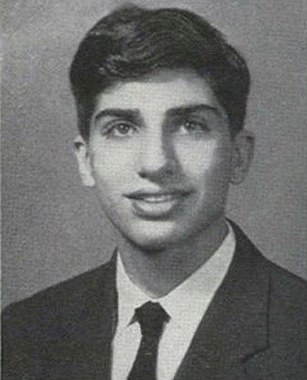
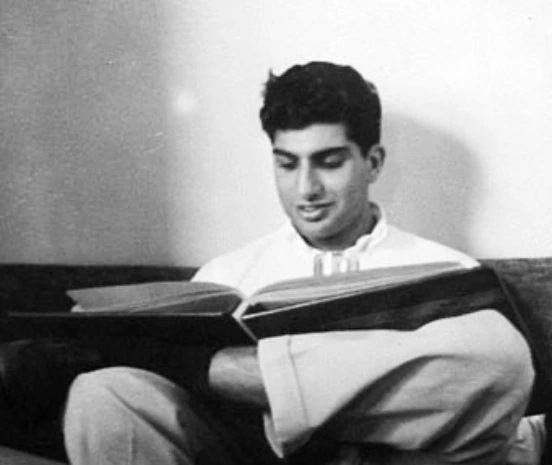 The founder of the Tata Group, Jamsetji Tata, was the great-grandson of Ratan Tata. After earning a Bachelor of Architecture degree from Cornell university in 1962, he started working for his family's company.
The founder of the Tata Group, Jamsetji Tata, was the great-grandson of Ratan Tata. After earning a Bachelor of Architecture degree from Cornell university in 1962, he started working for his family's company.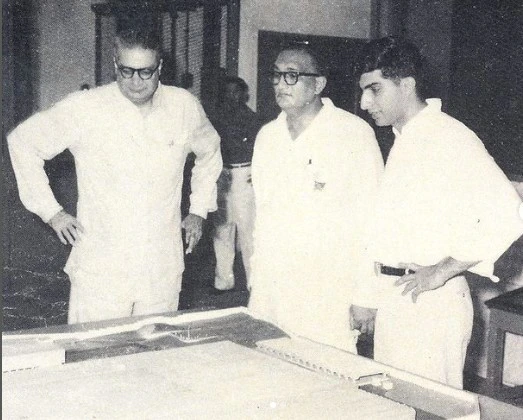 When he became chairman in 1991, the company was going through a difficult time with just USD 5.8 billion in sales. The corporation broadened its scope and diversified its interests under his direction, and by 2011–12, sales had increased to almost USD 100 billion.
When he became chairman in 1991, the company was going through a difficult time with just USD 5.8 billion in sales. The corporation broadened its scope and diversified its interests under his direction, and by 2011–12, sales had increased to almost USD 100 billion.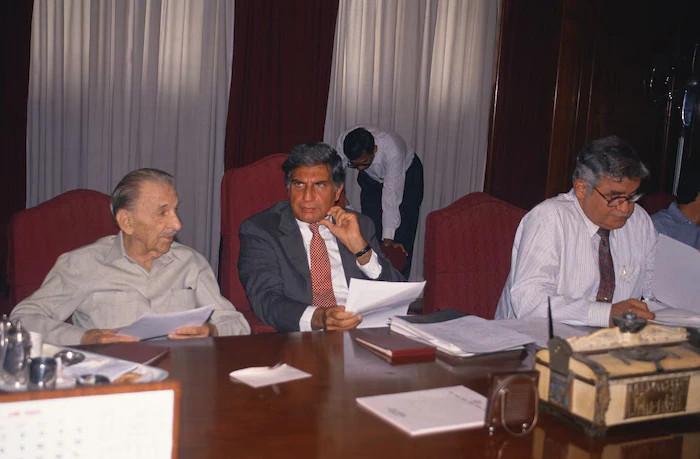
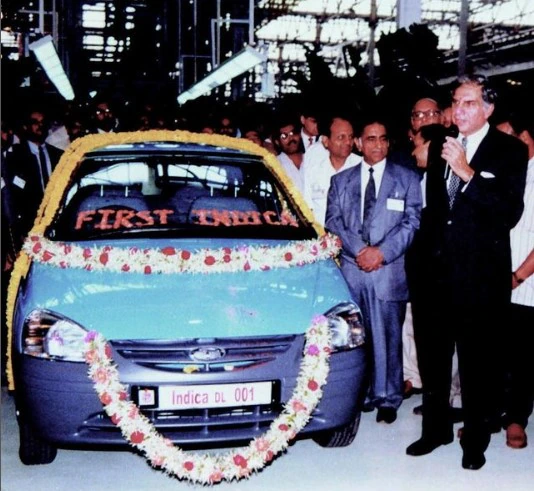
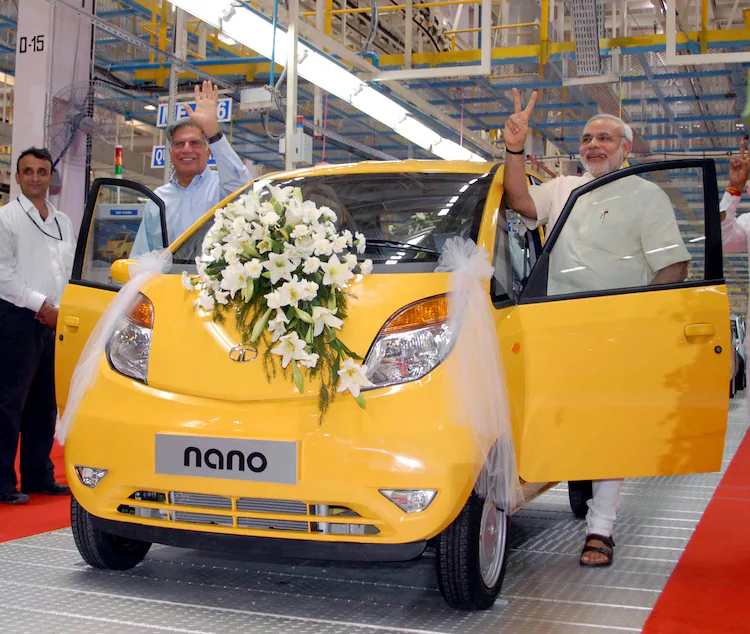 The 2008 debut of the Tata Nano may be the endeavor that most embodied Ratan Tata's dedication to India. His goal was to build the most inexpensive automobile in the world, priced at one lakh rupees, so that the middle class in india could afford transportation.
The 2008 debut of the Tata Nano may be the endeavor that most embodied Ratan Tata's dedication to India. His goal was to build the most inexpensive automobile in the world, priced at one lakh rupees, so that the middle class in india could afford transportation.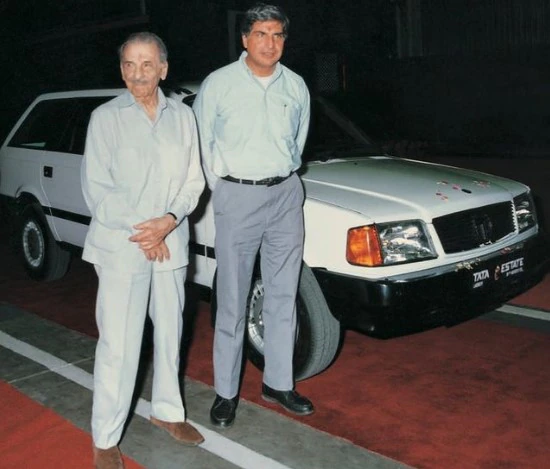
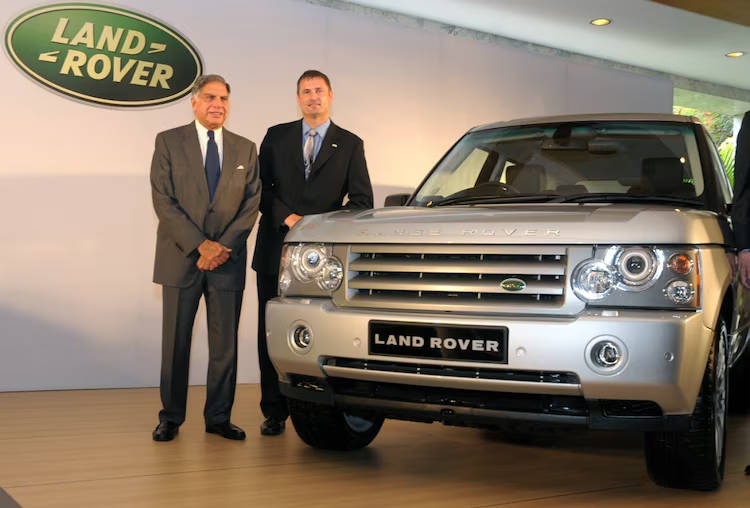
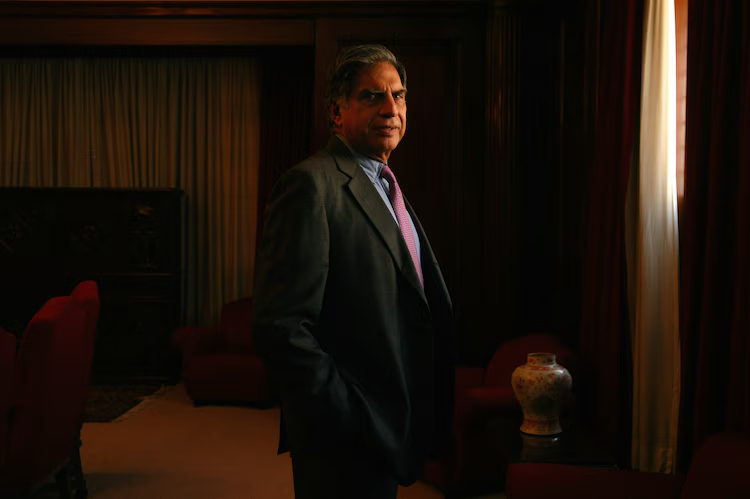




 click and follow Indiaherald WhatsApp channel
click and follow Indiaherald WhatsApp channel